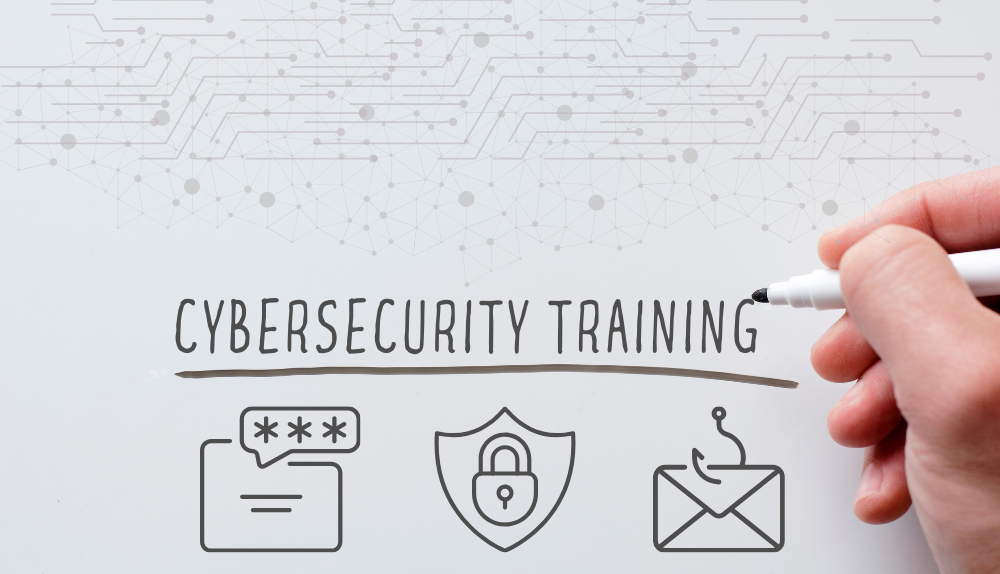How much should SMBs allocate to their cybersecurity budget?
In a time when large-scale commercial attacks make news, small and medium-sized enterprises (SMBs) may find it more straightforward to neglect...
2 min read
.jpeg) Michael Markulec
:
May 19, 2023 2:08:55 PM
Michael Markulec
:
May 19, 2023 2:08:55 PM
Cybersecurity has become a pressing concern for businesses of all sizes. However, a recent Harvard Business Review (HBR) article sheds light on a sobering truth: small businesses are ill-equipped to handle cybersecurity independently. The ever-evolving nature of cyber threats and limited resources and expertise call for a collaborative approach. In this blog post, we will explore why small businesses need to embrace collaboration in cybersecurity and the benefits it can bring.
Cyber threats are constantly evolving, becoming more sophisticated and pervasive. Hackers and malicious actors employ advanced techniques such as ransomware, phishing, and social engineering to exploit vulnerabilities and compromise sensitive data. These threats surpass the capabilities of individual small businesses, necessitating collective efforts to tackle them effectively.
Small businesses often need help with resource constraints when hiring and retaining skilled cybersecurity professionals. The demand for cybersecurity expertise exceeds the available talent pool, resulting in a significant skills gap. Collaborating with external partners and leveraging their specialized knowledge and skills can help small businesses bridge this gap, enabling them to enhance their cybersecurity defenses without the burden of maintaining an in-house team.
Effective cybersecurity relies on timely and accurate information about emerging threats. However, small businesses often need more time to share information due to concerns about reputation or legal repercussions. This siloed approach leaves them more vulnerable to attacks. Collaborating with industry peers and trusted partners can foster information sharing, allowing small businesses to stay informed about the latest threats, best practices, and mitigation strategies.
Collaborative efforts in cybersecurity can take the form of collective defense, where small businesses unite to protect shared interests. They can establish robust protection against cyber threats by pooling resources, knowledge, and capabilities. This approach involves sharing threat intelligence, coordinating incident response, and participating in industry-specific information-sharing initiatives. Small businesses can join cybersecurity alliances or industry groups that provide platforms for collaboration, enabling them to benefit from collective defense strategies.
Small businesses can leverage the expertise of external partners, such as managed security service providers (MSSPs) or cybersecurity consultants (such as Harbor Technology Group), to enhance their cybersecurity posture. MSSPs offer specialized services like continuous monitoring, threat detection, and incident response, complementing the internal security capabilities of small businesses. Engaging with trusted partners can also help navigate regulatory compliance requirements, develop robust cybersecurity strategies, and stay updated on the latest security technologies and trends.
Cybersecurity is a challenge for small businesses that cannot be faced alone. Collaborative cybersecurity efforts provide a pathway to mitigate risks, protect valuable assets, and ensure the trust of customers and stakeholders. By recognizing the limitations of their resources and expertise, small businesses can embrace collaboration as a strategic advantage. By sharing information, leveraging collective defense, and engaging external partners, they can fortify their cybersecurity defenses without breaking the bank. In the ever-evolving landscape of cyber threats, the strength of small businesses lies in their collaborative efforts to secure their digital presence.

In a time when large-scale commercial attacks make news, small and medium-sized enterprises (SMBs) may find it more straightforward to neglect...
Every day small and medium-sized businesses (SMBs) face increasing cyber threats. Despite limited resources, SMBs need to allocate their...

The frequency and sophistication of cyberattacks are increasing in the current technological age. However, a concerning gap persists as businesses, ...